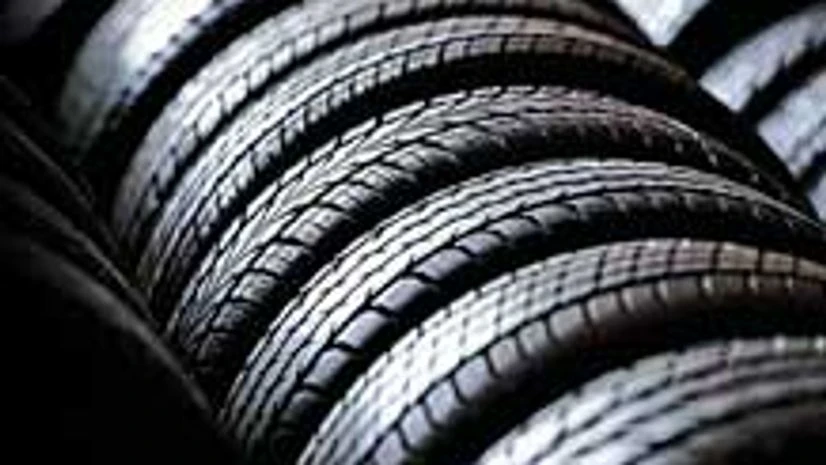The Singhania family-promoted JK Tyre is set to narrow the gap with Apollo Tyres, India’s second-largest tyre maker in the domestic market by revenue, after it agreed to acquire the Haridwar factory of BK Birla’s Kesoram Industries for Rs 2,200 crore.
While JK Tyre will remain third on the list, after MRF and Apollo, its revenue gap with Apollo will shrink to less than Rs 500 crore from about Rs 2,800 crore at the end of 2014-15. Market leader MRF is way ahead, with a standalone revenue of about Rs 13,000 crore.
JK Tyre’s move will also mark its entry into the two-wheeler and three-wheeler tyre market. The deal will help Kesoram Industries reduce its debt of about Rs 4,000 crore. The company has reported losses for the past four years, owing to a high interest burden. (MERGING ROADS)
“The acquisition is proposed to be funded by a combination of debt and internal accruals raised by JK Tyre and other JK Group entities,” read a JK Tyre statement. It is understood JK Group, of which JK Tyre is a part, has agreed to invest in the acquisition through other group companies. JK Tyre will invest Rs 450 crore and have the largest shareholding in the acquired business. It will also exercise substantial management control, with an option to place up to 55 per cent with its associates or group companies.
Following the acquisition, JK Tyre’s capacity will increase about 22 per cent to 24.4 million tyres a year. The acquisition will provide JK Tyre an opportunity to expand in the truck and bus radials segment, in which it is the market leader, as well as provide an entry into the fast-growing two- and three-wheeler tyre market. It expects the transaction to be “strategic, revenue-accretive and synergistic” with its existing tyre business.
JK Tyre, along with its Singapore subsidiary JK Asia Pacific Singapore Pte, will acquire hundred per cent equity in Cavendish Industries Ltd (CIL) from Kesoram Industries. CIL owns a tyre unit in Laskar near Haridwar in Uttarakhand. The plant manufactures a range of tyres, tuber and flaps. Currently, JK Tyre owns six plants in India and three in Mexico, through the Tornel acquisition (carried out in 2008 for Rs 270 crore). In 1997, JK Tyre acquired Vikrant Tyres from the Karnataka state government.
Raghupati Singhania, chairman and managing director of JK Tyre, said the company had proved its strength in “undertaking acquisitions with turnaround potential and successfully delivering results.”
In a separate statement, Kesoram said the transaction would strengthen the company’s balance sheet. “Proceeds from monetisation of assets will be used to reduce the debt burden of the company,” it said. The company, which has another tyre unit at Balasore (Odisha), said it remained committed to the tyre business. Its tyres are sold under the Birla Tyres brand.
Kesoram said the deal was likely to be completed by December this year.
In recent quarters, Indian tyre companies have been recording high margins due to a declining trend in rubber and crude oil prices, the two primary raw materials.
While JK Tyre will remain third on the list, after MRF and Apollo, its revenue gap with Apollo will shrink to less than Rs 500 crore from about Rs 2,800 crore at the end of 2014-15. Market leader MRF is way ahead, with a standalone revenue of about Rs 13,000 crore.
JK Tyre’s move will also mark its entry into the two-wheeler and three-wheeler tyre market. The deal will help Kesoram Industries reduce its debt of about Rs 4,000 crore. The company has reported losses for the past four years, owing to a high interest burden. (MERGING ROADS)
“The acquisition is proposed to be funded by a combination of debt and internal accruals raised by JK Tyre and other JK Group entities,” read a JK Tyre statement. It is understood JK Group, of which JK Tyre is a part, has agreed to invest in the acquisition through other group companies. JK Tyre will invest Rs 450 crore and have the largest shareholding in the acquired business. It will also exercise substantial management control, with an option to place up to 55 per cent with its associates or group companies.
Following the acquisition, JK Tyre’s capacity will increase about 22 per cent to 24.4 million tyres a year. The acquisition will provide JK Tyre an opportunity to expand in the truck and bus radials segment, in which it is the market leader, as well as provide an entry into the fast-growing two- and three-wheeler tyre market. It expects the transaction to be “strategic, revenue-accretive and synergistic” with its existing tyre business.
JK Tyre, along with its Singapore subsidiary JK Asia Pacific Singapore Pte, will acquire hundred per cent equity in Cavendish Industries Ltd (CIL) from Kesoram Industries. CIL owns a tyre unit in Laskar near Haridwar in Uttarakhand. The plant manufactures a range of tyres, tuber and flaps. Currently, JK Tyre owns six plants in India and three in Mexico, through the Tornel acquisition (carried out in 2008 for Rs 270 crore). In 1997, JK Tyre acquired Vikrant Tyres from the Karnataka state government.
Raghupati Singhania, chairman and managing director of JK Tyre, said the company had proved its strength in “undertaking acquisitions with turnaround potential and successfully delivering results.”
In a separate statement, Kesoram said the transaction would strengthen the company’s balance sheet. “Proceeds from monetisation of assets will be used to reduce the debt burden of the company,” it said. The company, which has another tyre unit at Balasore (Odisha), said it remained committed to the tyre business. Its tyres are sold under the Birla Tyres brand.
Kesoram said the deal was likely to be completed by December this year.
In recent quarters, Indian tyre companies have been recording high margins due to a declining trend in rubber and crude oil prices, the two primary raw materials.

)
